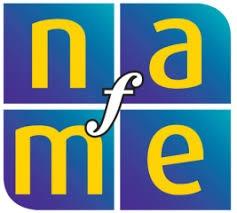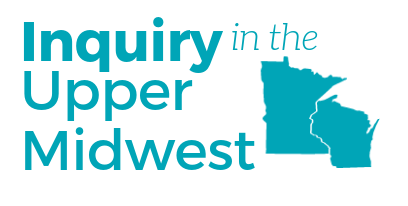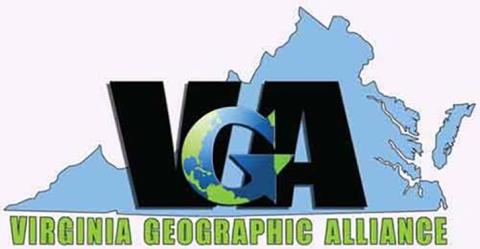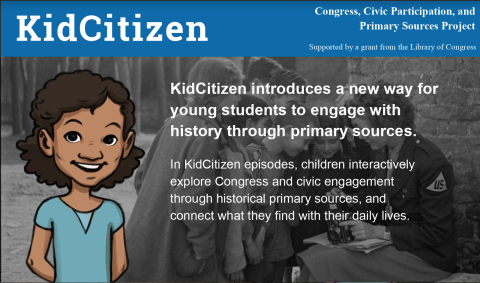2021

Responsive Inquiry In and Through Instrumental Music
(live event January 27, 2021)
During this 45-minute interactive webinar, explore ways that instrumental music leads students to deep inquiry around musical, cultural, and historical themes. Explore artifacts shared by the Library of Congress and make connections to instrumental music. A variety of instructional strategies are used to show how these connections can be made in an instrumental ensemble or history class. This webinar is designed for music educators and history educators at middle school and high school levels.
Dr. Jenny Neff, Associate Professor of Music Education, University of the Arts in Philadelphia
Resources:

Responsive Inquiry In and Through Vocal Music
(live event January 26, 2021)
During this 45-minute interactive webinar, explore ways that music leads students to deep inquiry around artistic, cultural, and historical themes. Explore music through three lenses: Music can be a window, a door, and a mirror to help students discover new perspectives about themselves and their world. Explore diverse work songs shared by the Library of Congress, using an approach that can be applied to any number of historic musical sources. This webinar is designed for music educators and history educators of all levels.
Carolyn Bennett, Music Educator, National Association for Music Education
Resources:
2020
Using The QFT with Primary Sources from the Library of Congress
(live event April 8, 2020)
The Library of Congress Teaching with Primary Sources has a rich array of primary sources available online. How can you use these sources during this time of distance learning to engage your students in discussion, questioning protocols, and investigations?
Join The Right Question Institute, the Library of Congress, the National Council for the Social Studies, and inquirED for practical tips and useful strategies to take inquiry-based teaching and learning with primary sources online
Dr. Tina Heafner, President of the National Council for the Social Studies
Sarah Westbrook, Director of Professional Learning, The Right Question Institute
Dr. Ann Canning, TPS Eastern Region Consultant
Jennifer Hanson, TPS Eastern Region Consultant
Resources:
2019

Working Toward a Culturally Relevant Classroom
(live event October 15, 2019)
The past has so much to teach us and our students have so much to teach us. How do we intersect effective social studies instruction and culturally relevant learning in a way that honors students' cultural competence? Using Culturally Relevant Pedagogy with primary sources can help our learners understand history while reflecting on their own knowledge and experiences. Join us for hands-on activities that share historical instruction through a culturally relevant lens.
Jessica Ellison, Teacher Education Specialist, Minnesota Historical Society
Resources:

Placing Primary Sources: Using Story Maps to Connect Space, Place, and Time (live event March 28, 2019)
All primary sources are connected to a place, space, and time. Story maps can provide the geographic context to situate primary sources in time and place to develop an accurate place-based narrative. Join us to explore the geographic perspectives related to primary sources from loc.gov using dynamic multimedia story maps.
Placing Primary Sources is a collection of classroom-ready story maps and accompanying teacher resources designed by teachers for teachers and produced by the Virginia Geographic Alliance in conjunction with the TPS Eastern Region. Free lesson plans, story maps, and tips and tricks will be shared.
Chris Bunin, Teacher, Virginia Geographic Alliance
Georgeanne Hribar, Teacher, Virginia Geographic Alliance
Resources:

See, Think, and Wonder: Engaging Young Children in Primary Source Inquiry with the KidCitizen Interactive (live event February 28, 2019)
This presentation highlights a freely available digital interactive designed to foster young children’s engaging inquiry with primary sources. KidCitizen is part of the Congress, Civic Participation, and Primary Sources Project. It is funded by a grant from the Library of Congress. The presenters will introduce KidCitizen and discuss how the models of learning showcased in the KidCitizen templates may be leveraged by teachers to support disciplined inquiry in primary grade instruction.
Dr. Michael J. Berson, professor, University of South Florida
Dr. Ilene Berson, professor, University of South Florida
Bert Snow, design advisor, Muzzy Lane Software
Resources:
Learn more about KidCitizen: https://www.kidcitizen.net/
2018
What's New About Fake News? Exploring Library of Congress Collections to Develop Media Literacy (live event October 25, 2018)
Students are avid social media users, often turning to web-based apps for their news. After the 2016 presidential election, "fake news" became the word of the year. How can teachers help equip students to be media literate in this era of misinformation and fake news?
Meghan Manfra, associate professor, North Carolina State University
Resources:
Write to the Source! (live event February 15, 2018)
Presenters share strategies for writing instruction in K-8 classrooms focused on developing content area writing through the use of informational texts.
Salika Lawrence, associate professor, Medgar Evers College, NY
Marie Donnantuono, school library media specialist, John P. Holland Charter School, NJ
Tiffany Labissiere, literacy coach, NYC Department of Education, NY
Joselle Fisher, pre-service teacher, Medgar Evers College, NY
Resource:
2017
School Librarians Get to the Source (live event October 12, 2017)
TPS-experienced elementary, middle, and high school librarians discuss key considerations for connecting Library of Congress resources with K-12 classrooms. Presenters provide insight and strategies to promote inquiry through teacher-librarian partnerships, including finding the right teachers to partner with, tips for identifying curricular entry points, and selecting primary sources.
Tom Bober, Library Media Specialist: R.M. Captaim Elementary, MO
Heather Balsley, Library Media Specialist: William Byrd Middle School, VA
Jennifer Hanson, Director of Library Services: Worchester Academy, MA
Resource:
2015
Tools for TPS Professional Development (live event February 18, 2015)
Library of Congress and TPS Eastern Region staff and grantees share how existing TPS tools can improve your PD offerings. The Library of Congress TPS program offers a wide array of tools for providers of professional development to help teachers effectively use primary sources in their classrooms.
Ann Canning, Eastern Region Facilitator: TPS BASICS, an asynchronous introduction to TPS
Sue Wise, Eastern Region Associate Director: Professional Development Providers Institute (PDPI)
Michelle LeBlanc, Director of Education & Public Programming, Boston Public Library, Leventhal Map Center: Participant Perspective
Cheryl Lederle, Educational Resources Specialist, Library of Congress: Ready-to-Use Resources from the Library of Congress
Resource:
2014
TPS Teachers Network (live event March 11, 2014)
The TPS Teachers Network is a unique opportunity for TPS Grant Project Leaders to collaborate, exchange ideas and sustain efforts, as well as broaden the community of learners. In combination with the Library's blog, Twitter feed, and Teachers Page, teachers have access to a community dedicated to strategies for teaching with primary sources. The newly updated and mobile-friendly TPS Teachers Network is an online educational social network that features dozens of tools for sharing resources and activity ideas.
Mary Johnson, TPS Teachers Network Coordinator, highlighted the new and improved features, tools and useful resources on this dynamic social platform designed with your specific needs in mind.
Resource:
2013
Cross-Curricular Connections Using Primary Sources (live event October 29, 2013)
Cross–curricular connections make learning more meaningful for students. Students who use information learned in different contexts tend to remember that information longer. Students are able to demonstrate success and build confidence when they apply a skill in new contexts. Cross-curricular connections are extremely important for reinforcing learning and building life-long learning habits.
Eastern Region Project Leaders, Claire Machosky, education consultant, Eastern Suffolk BOCES, Sophia Sineath, education coordinator, Georgia Historical Society and, Jill Beccaris-Pescatore, instructor of Economics Montgomery Community College, will share how their projects helped teachers use primary sources to support connections across the curriculum.
Resource:
Primary Sources: At the Heart of the Common Core State Standards (live event April 3, 2013)
Rich Cairn, director of Emerging America and the Massachusetts TPS Consortium, shares professional development approaches that give teachers explicit strategies for helping students become discerning writers, listeners and speakers in addressing the CCSS.
Eastern Region Project Directors, Sandy Pope, Columbia Teachers College, and Richard Schramm, National Humanities Center, shares how their TPS projects equip pre- and in-service teachers with the strategies needed to implement CCSS in the classroom.
Resource:
2012
Considerations for Selecting Primary Sources (November 7, 2012)
Susan Allen, mentor in the Library of Congress Teaching with Primary Sources (TPS) Teacher Network, began the session by sharing some of the challenges teachers face in selecting primary sources for use in the K-12 classroom. Then Anne Savage, Educational Resource Specialist at the Library of Congress, shared selection strategies and characteristics to consider for choosing appropriate, effective primary sources to use with your students.
Differentiated Instruction: Engaging All Learners with Primary Sources (live event March 8, 2012)
Dr. David Vawter, Winthrop University, SC shared his expertise and TPS project leaders Susan Allen, Canisius College, NY, and Joe Jelen, A.C.E.S., CT presented exemplary participant developed lesson plans highlighting differentiated instruction through TPS methods.
Content created and featured in partnership with the TPS program
does not indicate an endorsement by the Library of Congress.